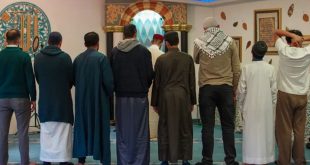Today, Quds Day has become an international phenomenon with marches and demonstrations held in many countries of the world.
It has been a full thirty years since Imam Khumayni first consecrated the last Friday of the month of Ramadan as “Quds Day” in a gesture of solidarity with the Palestinian people under the Zionist regime. Today, Quds Day has become an international phenomenon with marches and demonstrations held in many countries of the world. This paper begins by affirming the connection between the holy lands of Palestine and the advent of the Mahdi (‘atfs) as found within the hadith literature.
It then examines Imam Khumayni’s concept of intizar—one characterized by a dynamic activism—and its role in the declaration of International Quds Day. Through the examination of internet sources, the paper surveys the present status of Quds Day, which seems to have gained momentum both qualitatively and quantitatively, overcoming ethnic and sectarian boundaries. The author concludes with an analysis of the role of IT in the acceptance of Quds Day as a bona fide holiday in the Muslim world.
The victory of the Islamic Revolution in 1979 not only marks the triumph of the Islamic movement in Iran, but also heralds the dawn of a new phase in the Palestinian struggle against Israel. Barely a half year after the establishment of the Islamic government, the great leader of the Islamic Revolution, founder of the Islamic Republic, and magnificent idol-breaker of the twentieth century, Imam Khumayni (may his soul be sanctified), made the historic announcement consecrating the last Friday of the majestic month of fasting, Ramadhan, as ‘Quds Day’ to signify the global Muslims’ gesture of solidarity and support for all the oppressed peoples of the world as epitomized by the Palestinian people under the Zionist regime.
In his first message on the occasion of the auspicious day, the Imam of the ummah reveals that Quds day is a global day; thus, a day not exclusively for Quds. For him, it is a day of confrontation for nations that have been under tyranny. Accordingly, it is a day when the oppressed should become equipped against the oppressors and “they should rub their noses in the dirt.”
 Ijtihad Network Being Wise and Faithful Muslim in the Contemporary World
Ijtihad Network Being Wise and Faithful Muslim in the Contemporary World
